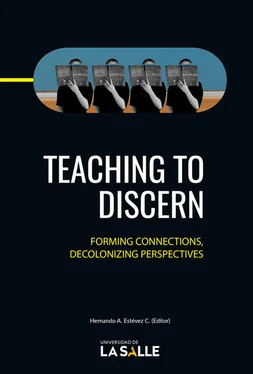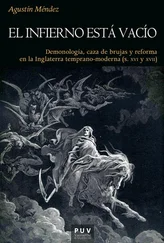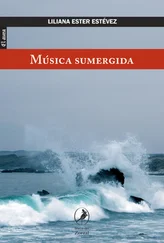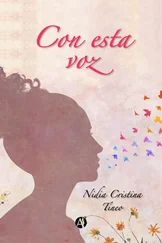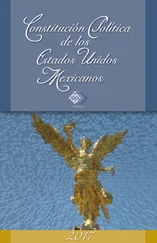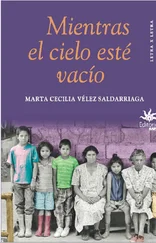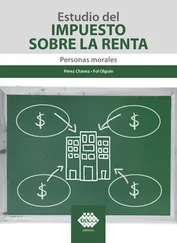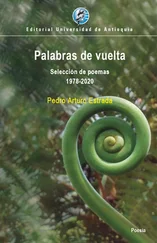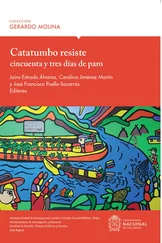The complexities of my suggestion become obvious especially when one considers both students’ reality and the way such reality is presented while recognizing the intrinsic relation to the content that will be presented to the students participating in the study abroad program. In other words, my initial claim is that there is a correlation between the content of education, the context where the educational practice occurs and the pedagogy that is used to share any given knowledge. The relationship between the content of education, its context and pedagogy serve as the bases for communication between individuals in the classroom. However, such a relationship reveals an epistemological approach that unfolds forms of privilege and power for students and faculty of both versions of an aforementioned study abroad program.
I would also like to argue that education is always a political act that involves a theory, a method, and a value of truth — that is, it is never neutral nor impartial because to educate is to politically commit oneself to either reproduce what is already in place or to create new social and political paradigms. In that sense, the content of education becomes a tool for mediating between the classroom and reality and a medium for proposing novel ways to understand the complexities of reality and the continuum need to reflect upon the role education plays in the construction of reality. In that sense, one does not engage in education through knowledge alone; on the contrary, knowledge contains judgements, values and perceptions of the world that are impossible to avoid. In other words, we are all defined by a subjective account of our own understanding of reality and, as such, education and teaching are practices that are aware of the unequal relation between teacher and student, which in many cases is reinforced by a content that reproduces reality and leaves no room for creativity towards novel social and political paradigms.
This awareness is the bases for Paulo Freire’s work on education, teaching and social change. According to Freire (2005), education’s end is driven by the possibility of liberating individuals from the oppressive quality of their reality. This form of education demands individual and collective liberation through the process of “conscientization.” Freire’s pedagogy is mainly concerned with the construction of a less dehumanized world. A liberating process of becoming aware, of regaining humanity implies, for Freire, a move from a naïve consciousness to a critical consciousness. Individuals possess an understanding of the world but they do not always comprehend that their reality has been imposed by an oppressive social order and justified by historical accounts claiming its reality as necessary or normal. Paulo Freire’s Pedagogy of the Oppressed (2005) makes us aware of the traditional conditions that affect education and pedagogy by dismantling the inner practices that constitute traditional and normal education. The level of normalization to which peoples’ consciousness and system of beliefs have been accustomed is, in Freire’s opinion, the state of oppression. However, it is also the source of a need to transform individuals’ perception of the world and understanding of the place they hold in society. Human beings make history and, simultaneously, history constitutes humanity. Human nature is not predetermined; rather, it is constructed socially and historically. And it is within history and society that individuals can find not only the source of their oppression but also the means to escape their own situation.
In this liberating process, individuals take possession of their reality by denouncing their dehumanized order and proposing a humanized structure. For Freire (2005), individuals are not solely beings in the world; rather, they are constituted in their context, having a role in it and with others. Once individuals’ consciousness has become aware of their role in history and society, through the educational process of “conscientization,” then they come to realize that their place in society can be transformed and that they are the protagonists of their own history.
For Freire, education can only take place in a community of inquiry in which the content of education comes from the participants through dialogue by creating a dynamic process in which education and action are interwoven. Understanding and participating in individuals’ reality is probably the first step in the Freirian awakening process. For this reason, the relationship between teacher and student must exist outside the “banking concept of education” (Freire, 2005, p. 72), which forces students to replicate old dynamics of social oppression; it is opposed to an “Education as the practice of freedom” (Freire, 2005, p. 81). This education allows students to critically think about their socio-historical conditions in order to try and change them.
The banking system does not acknowledge the value of students’ life experience, but rather it considers them empty minds in need of education and knowledge. The process of education is then reduced to a simple imparting of knowledge rather than a sharing of knowledge. At the center of Freire’s proposal is a call to overthrow all forms of a social order based on power and privilege containing precepts for the preservation of a society based on power dynamics.
For Freire, the world is divided between the oppressor and the oppressed. In some form or another, every individual is part of what Hegel (1977) expressed in the master-slave dialectic. In order for an individual to be liberated from this existential dichotomy, according to Freire (2005), he or she must first engage in a pedagogie vraiment liberatrice (“truly liberating pedagogy”) capable of distinguishing between humanistic education and humanitarian education. Only a humanistic education would enable a process of conscientization through which individuals would engage in a pedagogical practice animee d’une generosite authentique (“animated by an authentic generosity”). I would like to argue that authentic generosity constitutes the core of Freire’s educational theory. For Freire, (2005), the desirable goal is to liberate individuals from their oppressive realities through generosity and humanization. Beneath this claim lies the belief that all individuals, regardless of their contingent place in society, are entitled — if not by education, by their own humanity — to participate in the construction of their own realities and communities. To reach such goal, Freire (2005) advocates an educational theory conducive to the empowering of individuals by the development of a critical consciousness capable of pushing education beyond its instructional limits. The force behind Freire’s educational project surpasses traditional education as a social tool, by making it a necessary and transforming political resource. In that sense, education and pedagogy for Freire (2005) are political practices adept at finding solutions to social and political problems. Freire articulates this principle by maintaining that education’s key precept is the undeniable fact that education is not neutral.
Accordingly, education is either designed to maintain the status quo, imposing on people the values and culture of the dominant class or to liberate those people, helping them to transform society. Freire’s new individual undertakes the critical role of merging theory and practice: praxis demands of a critique, a theory, in order to become a transforming social and political experience. Engaged in these critical perspectives of socio-political conditions, individuals fuse theory with praxis by making knowledge contextual. Individuals attain knowledge from daily interaction with others and by facing the problems of their reality.
The study abroad program proposed by Universidad de La Salle, built around the idea of “bringing the world to the students,” must take into account the endemic relations of privilege and power that come with traditional education. Furthermore, it should also become critical of one’s own condition, as well of the conditions determining one’s reality. Plato’s dialogue, The Sophist, claims that the fundamental aim of education is to contest ignorance. Education’s concern is not the fulfilling of a need, like providing food to the hungry; rather, the primary goal is to release individuals of their indigestion of opinions that have obstructed their possibility of any desire for knowledge and truth. Ignorance is not a deficiency. Instead, it is an excess of confidence on mere opinions. For Plato, as well as for Socrates, education’s first duty is to establish a critique of such opinions. The quote, commonly attributed to Socrates, “I only know that I know nothing” (see Plato, 1914), elucidates a great level of understanding and knowledge: Not knowing is the result of a profound critique of what one thinks or believes; it is to transform what one knows. The most effective education is one that creates the need for knowledge. Education is not solely a need for information, but rather a need to learn to think critically. To be critical is to learn how to think for oneself. To find fault in the world and society involves a specific practice, an education conducive to awaken in others the capacity of becoming empower to find knowledge within their own means and concurrently to critique and reflect about what is learned. Ultimately, education must develop pedagogical reflection about our own body of knowledge and the process of acquiring it.
Читать дальше
